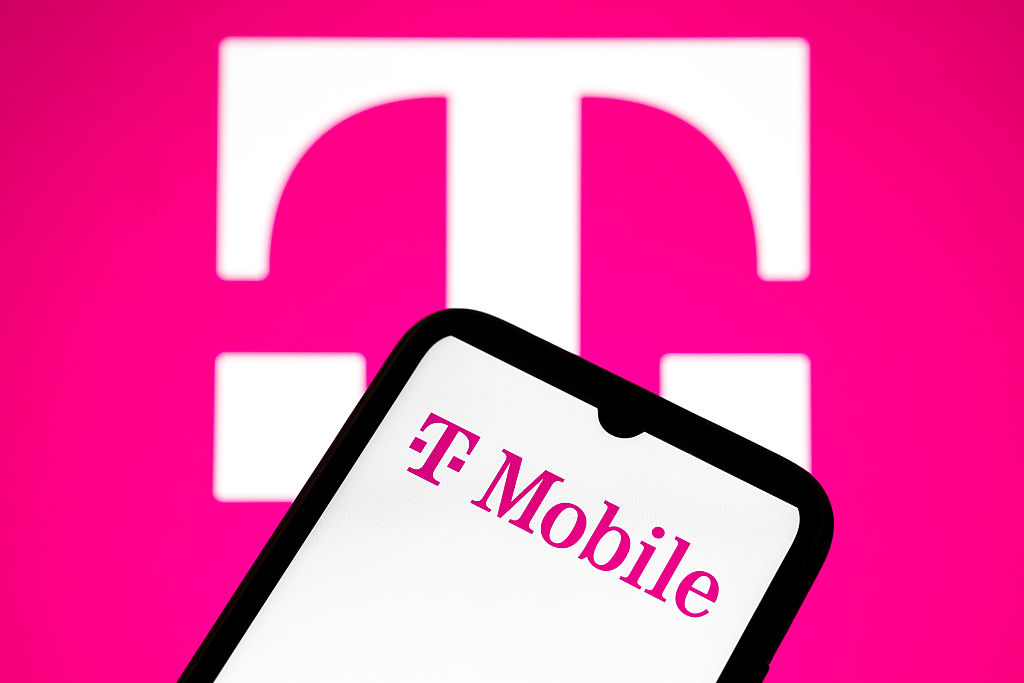Common Holiday Scams To Watch Out For This Holiday Season
Protect your wallet and peace of mind with these essential tips on how to avoid holiday scams.

Profit and prosper with the best of Kiplinger's advice on investing, taxes, retirement, personal finance and much more. Delivered daily. Enter your email in the box and click Sign Me Up.
You are now subscribed
Your newsletter sign-up was successful
Want to add more newsletters?

Delivered daily
Kiplinger Today
Profit and prosper with the best of Kiplinger's advice on investing, taxes, retirement, personal finance and much more delivered daily. Smart money moves start here.

Sent five days a week
Kiplinger A Step Ahead
Get practical help to make better financial decisions in your everyday life, from spending to savings on top deals.

Delivered daily
Kiplinger Closing Bell
Get today's biggest financial and investing headlines delivered to your inbox every day the U.S. stock market is open.

Sent twice a week
Kiplinger Adviser Intel
Financial pros across the country share best practices and fresh tactics to preserve and grow your wealth.

Delivered weekly
Kiplinger Tax Tips
Trim your federal and state tax bills with practical tax-planning and tax-cutting strategies.

Sent twice a week
Kiplinger Retirement Tips
Your twice-a-week guide to planning and enjoying a financially secure and richly rewarding retirement

Sent bimonthly.
Kiplinger Adviser Angle
Insights for advisers, wealth managers and other financial professionals.

Sent twice a week
Kiplinger Investing Weekly
Your twice-a-week roundup of promising stocks, funds, companies and industries you should consider, ones you should avoid, and why.

Sent weekly for six weeks
Kiplinger Invest for Retirement
Your step-by-step six-part series on how to invest for retirement, from devising a successful strategy to exactly which investments to choose.
The holidays bring joy and time with loved ones, but they also bring out those who try to steal that joy through holiday scams like fake online deals, phishing emails and package delivery fraud. Scammers are finding more creative and realistic ways to target shoppers and steal their personal information.
These are some of the most common holiday scams happening now.
Online shopping fraud
From just $107.88 $24.99 for Kiplinger Personal Finance
Become a smarter, better informed investor. Subscribe from just $107.88 $24.99, plus get up to 4 Special Issues

Sign up for Kiplinger’s Free Newsletters
Profit and prosper with the best of expert advice on investing, taxes, retirement, personal finance and more - straight to your e-mail.
Profit and prosper with the best of expert advice - straight to your e-mail.
Did you spot a great deal on a luxury item while scrolling on social media? It might include product pictures, top-rated reviews and, of course, an offer to get the item at a great price. These ads often lead to a fake website designed to steal your personal information. When shopping online, be wary of ads and deals that seem too good to be true.
Phishing scams
Phishing scams are realistic emails or texts featuring order confirmations, invoices or requests to verify your personal information. They look like they’re from legit companies that you do business with, so they don’t initially look sketchy but there are clues. Look out for suspicious email addresses, grammatical errors, or a sense of urgency in their tone.
Package delivery scams
With so much holiday shopping taking place online, it’s not uncommon to be expecting package deliveries, and sophisticated thieves are taking full advantage of the chaos. Scammers send package delivery confirmations by email or text, tricking you into clicking links that either request sensitive information or install malware on your device. Stay safe, avoid clicking on unexpected links. Instead track your packing directly through the retailer where you purchased your items.
How to avoid falling victim to holiday scams
With so many holiday scams targeting you, it can feel overwhelming trying to avoid them all. However, there are some simple steps you can take to thwart efforts to do you harm:
- Verify their authenticity. If you receive an unexpected text or email from a well-known company, check the email address or phone numbers to ensure they are legit. Don’t click on any links in the text or email, but instead go to the company’s website and see if the information matches up. You also can call the company’s customer service number to verify if an email or text is legit.
- Be wary of a great deal. The old adage, “If it looks too good to be true, it probably is,” is especially applicable during the holiday season.
- Don’t use public Wi-Fi. While convenient, these unsecured networks leave your data at the mercy of hackers. If you must use public Wi-Fi take precautions and use a VPN or wait until you’re on a secure network before entering personal information.
- Shop only from reputable sites. If you’re not familiar with a merchant, do your research. If you have trouble finding detailed information on the company such as where it’s located and who owns it, stick to companies you know.
- Beware before sending money through apps. While many sites accept Apple Pay, PayPal or other apps, verify you’re sending money to a legitimate merchant before making any payment. Once you do, you may not have any remedy for getting it back.
Related Content
Profit and prosper with the best of Kiplinger's advice on investing, taxes, retirement, personal finance and much more. Delivered daily. Enter your email in the box and click Sign Me Up.

Karon writes about personal finance, including consumer credit, credit cards, mortgages, student loans and retirement, along with travel, small business and health care. Her work has appeared in U.S. News & World Report, LendingTree, USA Today’s 10Best, GoodRx and many others. Karon earned her B.S. In journalism with an emphasis on news editorial from the University of Southern Mississippi. A member of the American Society of Journalists & Authors, Karon released her first book, “100 Things to Do in the North Georgia Mountains Before You Die” (Reedy Press), in 2022.
-
 Dow Adds 1,206 Points to Top 50,000: Stock Market Today
Dow Adds 1,206 Points to Top 50,000: Stock Market TodayThe S&P 500 and Nasdaq also had strong finishes to a volatile week, with beaten-down tech stocks outperforming.
-
 Ask the Tax Editor: Federal Income Tax Deductions
Ask the Tax Editor: Federal Income Tax DeductionsAsk the Editor In this week's Ask the Editor Q&A, Joy Taylor answers questions on federal income tax deductions
-
 States With No-Fault Car Insurance Laws (and How No-Fault Car Insurance Works)
States With No-Fault Car Insurance Laws (and How No-Fault Car Insurance Works)A breakdown of the confusing rules around no-fault car insurance in every state where it exists.
-
 How Much It Costs to Host a Super Bowl Party in 2026
How Much It Costs to Host a Super Bowl Party in 2026Hosting a Super Bowl party in 2026 could cost you. Here's a breakdown of food, drink and entertainment costs — plus ways to save.
-
 8 Things You Need to Stop Wasting Money on in 2026
8 Things You Need to Stop Wasting Money on in 2026Want to get your finances in shape this year? Start by cutting out these sneaky sources of waste in your budget.
-
 Samsung Galaxy S25 Ultra for $4.99 a Month: A Closer Look at Verizon’s Deal
Samsung Galaxy S25 Ultra for $4.99 a Month: A Closer Look at Verizon’s DealVerizon’s aggressive pricing makes Samsung’s top-tier phone tempting, but the real cost depends on your plan and how long you stay.
-
 Are T-Mobile's Prepaid Perks a Home Run or a Strikeout?
Are T-Mobile's Prepaid Perks a Home Run or a Strikeout?T-Mobile's prepaid lineup promises MLB.TV, T-Mobile Tuesdays and hotspot data. But do the perks make it worth switching?
-
 23 Last-Minute Gifts That Still Arrive Before Christmas
23 Last-Minute Gifts That Still Arrive Before ChristmasScrambling to cross those last few names off your list? Here are 23 last-minute gifts that you can still get in time for Christmas.
-
 Verizon’s 4-Line Phone Promo Offers Strong Value for Families Upgrading to Premium Devices
Verizon’s 4-Line Phone Promo Offers Strong Value for Families Upgrading to Premium DevicesFamilies can upgrade to top-tier smartphones for $25 a line with Verizon’s newest offer.
-
 Top Tech Gifts You Can Still Get Before Christmas from Walmart
Top Tech Gifts You Can Still Get Before Christmas from WalmartBig savings on Apple, Bose, HP, Vizio and more while there's still time to shop.
-
 Last-Minute Gifts for Grandkids from Walmart
Last-Minute Gifts for Grandkids from WalmartFrom PlayStations to Labubus, you'll find the hottest gifts of 2025 for your grandkids at Walmart this year. And many still arrive in time for Christmas.